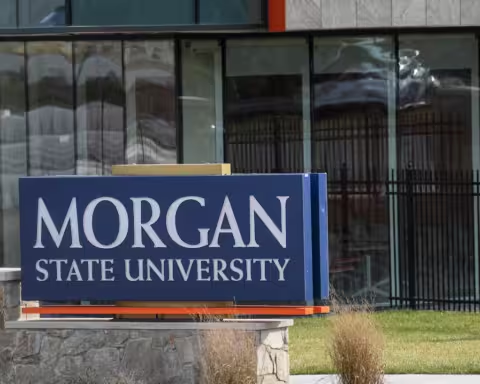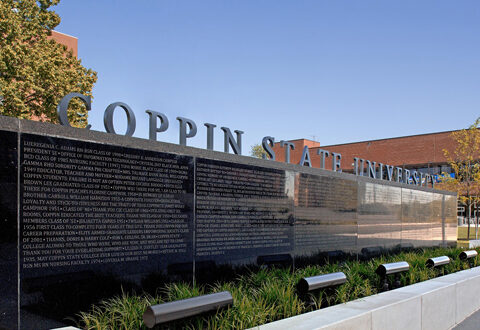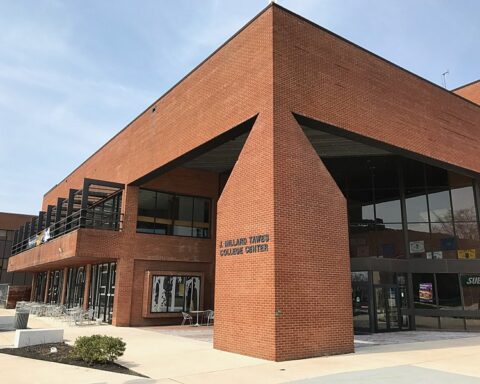Courtesy of Coppin State University
Complete College America (CCA) has selected six Historically Black Colleges & Universities (HBCUs) to take part in a first-of-its-kind Digital Learning Infrastructure (DLI) initiative. As a national leader focused on building movements to transform postsecondary education and drive college completion, CCA will work alongside these partner institutions to reimagine how colleges and universities can build digital cultures that promote learning and student success. In addition to the participating institutions, CCA has convened 19 leading experts from HBCUs, Minority Serving Institutions (MSIs), and the digital learning sector who will advise the initiative as it explores innovations that will dramatically improve outcomes for students.
The six selected institutions are: Coppin State University in Baltimore, MD; Langston University in Langston, OK; Mississippi Valley State University in Itta Bena, MS; Virginia State University in Petersburg, VA; Wiley College in Marshall, TX; and Xavier University of Louisiana in New Orleans, LA. Institutions were evaluated on a number of criteria, including track record of innovation, commitment to student success, and novel uses of technology to deliver exceptional learning and campus experiences. These institutions – with the support of the advisory board – will collaborate on an extensive research and design project focused on building an integrated framework for digital learning at HBCUs.
This initiative is uniquely structured as a co-design effort between CCA, selected HBCUs, the advisory board, and the Bill & Melinda Gates Foundation (BMGF), who is supporting the project. The co-design approach is specifically built to engage sector leaders earlier in the process in order to inform the long-term grantmaking strategy for the foundation. By engaging leaders and practitioners through an equity-centered co-design process, the foundation is seeking to better understand their unique approach – the policies, perspectives, and practices that cultivate student success – and scale their insights across the postsecondary sector.
Historically Black Colleges & Universities are gaining long-overdue recognition from policymakers, philanthropy, and the higher education sector for their track record of Black student success – often in the face of underfunding, structural racism, and a lack of broad support. As our nation reckons with its history of racial injustice and inequity, HBCUs are rightly seen as invaluable institutions that should be central to the work of racial, educational, and economic justice and are attracting much-deserved interest. At the same time, the COVID-19 pandemic is causing colleges and universities to quickly develop digital learning offerings that meet the changing needs of students and institutions. HBCUs offer unique insights not just on the technological aspects of digital learning, but also promise to highlight the cultural, communal, and behavioral aspects of successful digital learning environments.
“CCA has selected an incredible set of institutions for this initiative, each with their own unique perspective on digital learning,” said Dr. Anthony L. Jenkins, president of Coppin State University. “We’re honored to have been selected and look forward to contributing to the future of innovating learning in the context of institutions built with Black learners at the center.”
The initiative’s work is already underway. In the coming months, CCA and its partners will begin to share insights and findings as well as work with BMGF to develop a long-term strategy to advance digital learning infrastructure.





